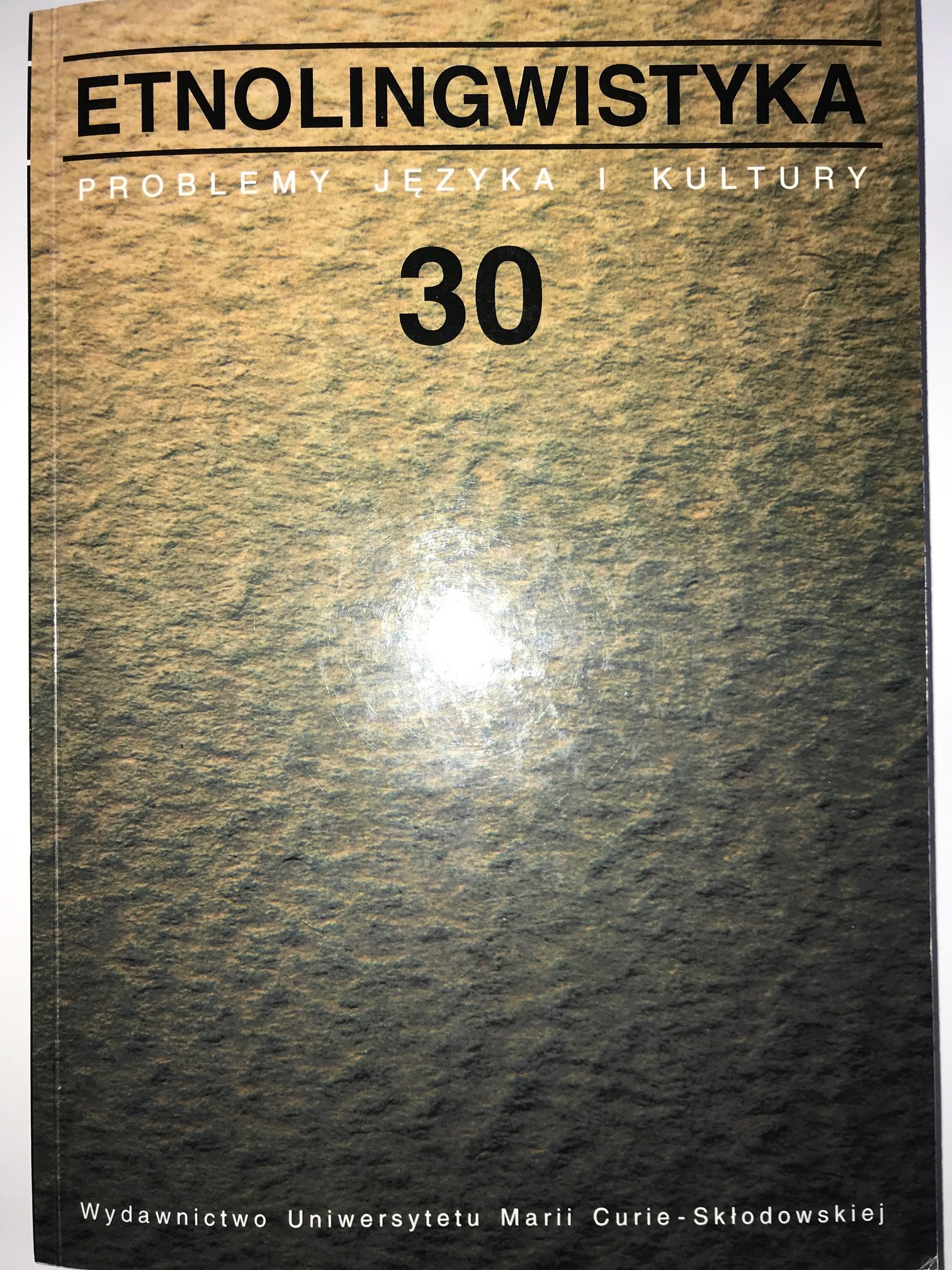A ‘sense of entitlement’ encoded in English grammar
A ‘sense of entitlement’ encoded in English grammar
Author(s): Anna WierzbickaSubject(s): Anthropology, Cognitive linguistics
Published by: Wydawnictwo Naukowe Uniwersytetu Marii Curie-Sklodowskiej
Keywords: entitlement; function of pronoun my; ritualistic activity; privacy; Natural Semantic Metalanguage
Summary/Abstract: The study claims that in English there is a grammatical construction, or even a family of constructions, that expresses the notion of a ‘sense of entitlement’. In sentences like Can I have my apple and cheese, please?, this notion is expressed with the pronoun my. In order to describe the meaning of this construction in a way that would be understandable not only to speakers of English but also those whose languages do not contain the word for ‘entitlement’, Natural Semantic Metalanguage is used. NSM, in the intention of its creators, allows for descriptions of languages and cultures with the use of universal and semantically simple concepts, present in all languages as lexemes or similar units.The ‘sense of entitlement’ is expressed when everyday rituals are violated, which disturbs the speaker, e.g. Would you leave me finish my breakfast?. The assumption here is that everyone has the right and wants to perform these regular, ritualistic activities. The range of potential obstacles has not been established at this stage of research but can be captured in the formula “I cannot do now what I always do at this time; this is bad; everybody can know this”.The meaning of a ‘sense of entitlement’ is connected with such words and expressions as have the right to, be entitled to, personal space, privacy, violate/disturb/interfere, which express some of the major assumptions and concerns of contemporary Anglo-culture. Especially interesting is the connection between the ‘sense of entitlement’ and justice because both are grounded in the existence of voluntarily obeyed principles. It appears that the English grammar contains an implicit understanding that everybody has the right to their personal routine that involves having breakfast (my breakfast) or dinner (my dinner) in a particular way, or e.g. reading (my newspaper). It is bad when the routine is disturbed by others.
Journal: Etnolingwistyka. Problemy Języka I Kultury
- Issue Year: 30/2018
- Issue No: 30
- Page Range: 133-143
- Page Count: 11
- Language: English

